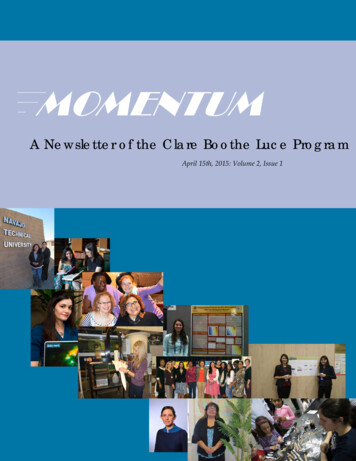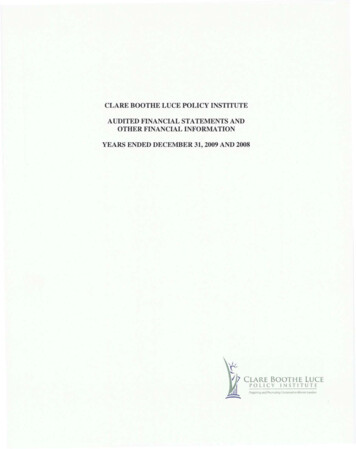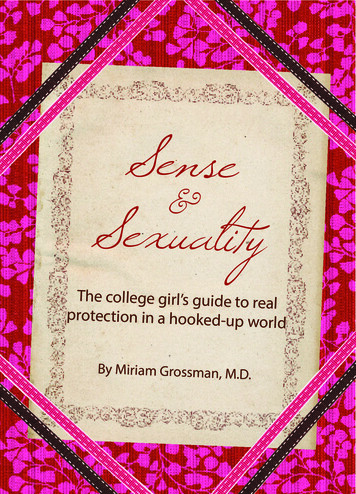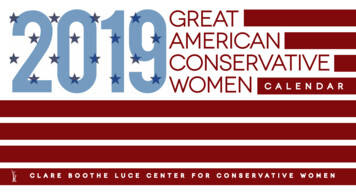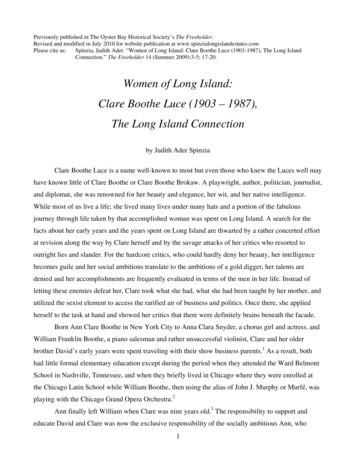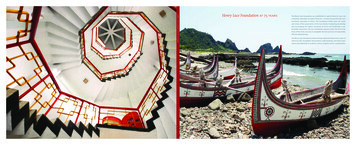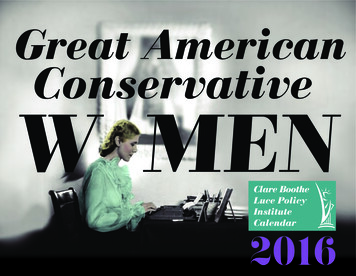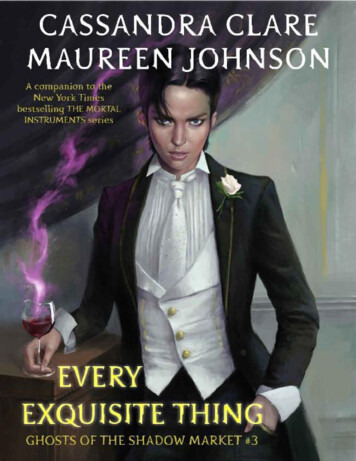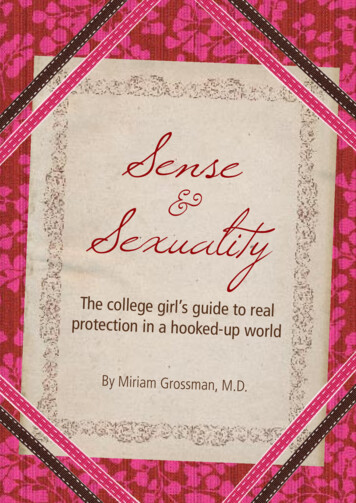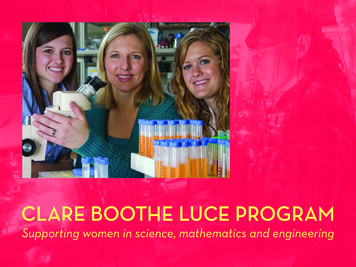
Transcription
CLARE BOOTHE LUCE PROGRAMSupporting women in science, mathematics and engineering
Since its inception in 1989, theClare Boothe Luce Program hasbeen one of the most significantsources of support for womenseeking to study or teach science,engineering, and mathematics.As of 2019, the Clare Boothe LuceProgram will have awarded over 200 million in grants to more than200 U.S. colleges and universitiesto support over 2,500 women.Women comprise nearly half of the facultyin non-science fields at four-year collegesand universities nationwide, but only abouta quarter of faculty in mathematics, andan even smaller percentage in the physicalsciences, engineering and computer science.To encourage women to enter science,mathematics and engineering fields,the Clare Boothe Luce Program grants: Undergraduate Scholarships/Undergraduate Research Awards Graduate Fellowships Assistant/Associate Professorships
PROGRAM DETAILS Grants are made only to four-yeardegree-granting institutions, not directlyto individuals. Preference is given for support of womenin physical science and engineering fieldsin which women are the most underrepresented, e.g., physics, computerscience, mathematics, electrical engineering, mechanical engineering, etc. Catholic institutions with strong scienceprograms are especially encouragedto apply. Recipients must be U.S. citizens orpermanent residents. Medical and social sciences are excluded.Undergraduate award recipients often participate in community outreach activities to interest more women in science,mathematics and engineering. Seattle University Undergraduate Research Scholar Suzi Bredberg talks to communitymembers about physics and mechanical engineering at alocal science expo.Women faculty and students bringintellectual capacity and diverseperspectives to the sciences,mathematics and engineering,enriching those professions.
APPLICATION PROCESSThirteen educational institutions specificallydesignated in Mrs. Luce’s will receivegrants from an initial allocation in perpetuity.Please refer to our website for a list ofthese institutions.In addition to the 13 designated institutions,other institutions may apply for Clare BootheLuce Program support through an annual,open competition that consists of a two-stepapplication process.STEP1 : INFORMATION FORM All institutions must complete and submitan Information Form through our onlineapplication portal. Institutions must indicate on the formwhich category of award is being sought:Undergraduate Scholarships, UndergraduateResearch Awards, Graduate Fellowships,or Professorships.Many Clare Boothe Luce professors are selected forNational Science Foundation and other prestigious awards.Mount Holyoke Assistant Professor of Computer ScienceAudrey Lee-St. John, here in her robotics lab with students,received a five-year CAREER Award from the NSF.“The prestige associated with theClare Boothe Luce Professorshiphas been the single mostimportant factor in helping meto establish myself as a respectedmember of my departmentand among colleagues in my field.”— CLARE BOOTHE LUCE PROFESSOR
STEP2 : FULL PROPOSAL Following a review by the Clare Boothe LuceProgram Selection Committee, top-ratedcandidate institutions in each award categoryare invited to submit full proposals. Full proposals are reviewed by the ClareBoothe Luce Program Selection Committee.Selected institutions are awarded grants,subject to acceptance of terms.For more detailed information about programguidelines and the application process, please visitour website: rogram/application-guidelines/Georgetown University Clare Boothe Luce AssistantProfessor of Physics Rhonda Dzakpasu utilizesexperiments and computational techniques to explorepatterns in networks of neurons.“The Clare Boothe Luce Program is importantbecause it helps focus the attention ofuniversities on the issue of gender disparities.It provides one more opportunity andincentive to increase their diversity.”— CLARE BOOTHE LUCE PROFESSORGraduate Fellowship recipients benefit from support at thebeginning of their graduate studies, when funds for independentresearch are rarely available. University of Virginia GraduateFellow in Astronomy Sandy Liss conducts research at theNational Radio Astronomy Observatory in New Mexico.
COURTESY OF THE CLARE BOOTHE LUCE ARCHIVESCLARE BOOTHE LUCEPlaywright, journalist, Ambassador, and memberof Congress, Clare Boothe Luce was one ofthe most accomplished women of the twentiethcentury. She appreciated, however, that manywomen face obstacles in their chosen profession.With her brilliant bequest establishing this program,she sought “to encourage women to enter, study,graduate and teach” in fields where there havebeen barriers to their advancement: the sciences,mathematics and engineering.The Clare Boothe Luce Programfor women in science, mathematicsand engineering is a programof the Henry Luce Foundation.For more information about theClare Boothe Luce Program,please visit our e-luce-program/Henry Luce Foundation51 Madison Avenue, 30th FloorNew York, New York 10010212.489.7700 CBL@hluce.org: Dr. Juliane Strauss-Soukup, ClareBoothe Luce Assistant Professor of Chemistryat Creighton University, with UndergraduateScholars Natalie German and Kelley Wanzeck.COVER BACKGROUND : MIT Graduate Fellow inPhysics Jenny Schloss works with a laser usedto manipulate atoms.BACK COVER : University of Colorado Clare BootheLuce Assistant Professor of Physics Cindy Regalreceived a Presidential Early Career Awardfor Scientists and Engineers.COVER INSET
CLARE BOOTHE LUCE Since its inception in 1989, the Clare Boothe Luce Program has been one of the most significant sources of support for women seeking to study or teach science, engineering, and mathematics. As of 2019, the Clare Boothe Luce Program will have awarded over 200 million in grants to more than 200 U.S. colleges and universities
